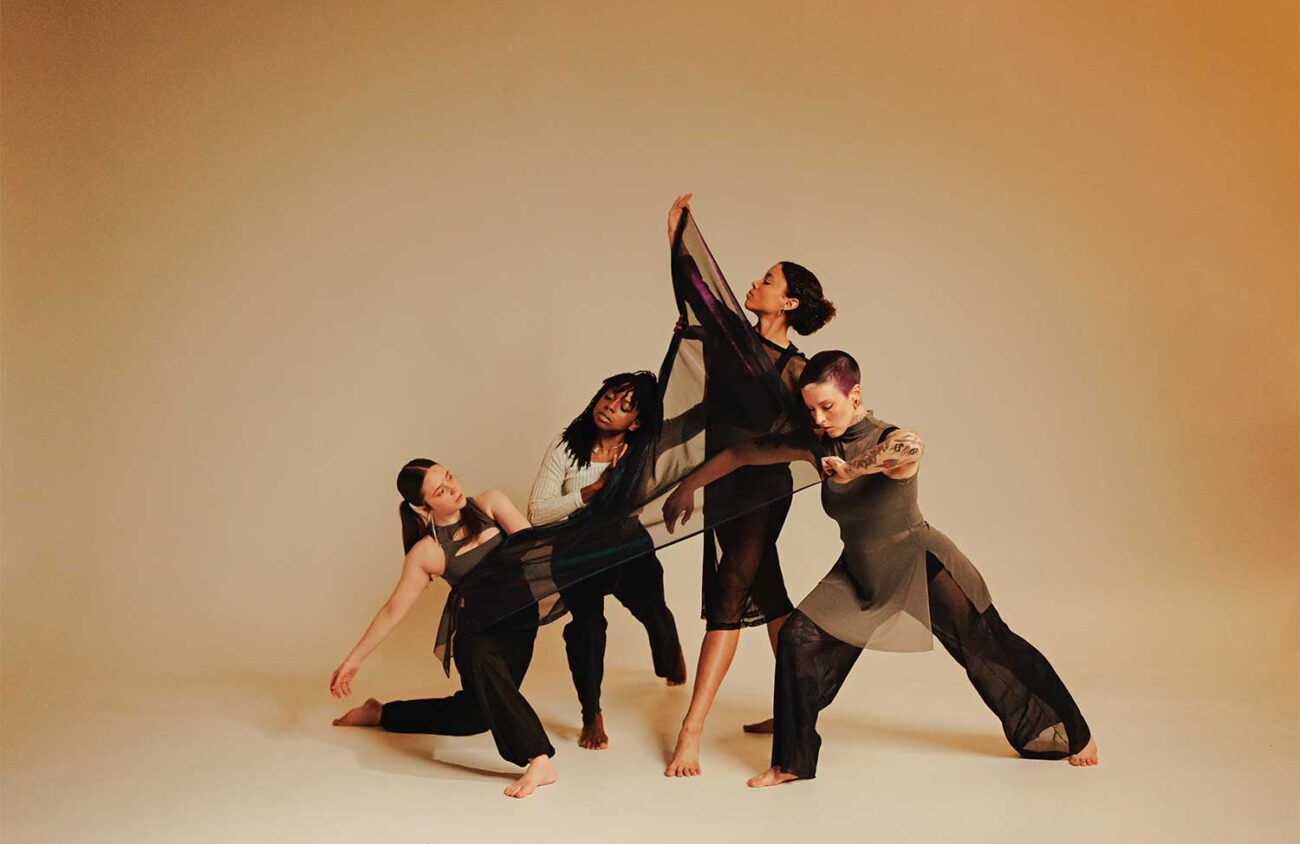Eugene-based Fermata Ballet Collective presents Fall Works Nov. 30 and Dec. 1 at Very Little Theatre in Eugene. Founded in 2020, Fermata has presented workshops, seminars, gala and smaller-scale dance performances at several venues in town. According to organizers, Fall Works will be the collective’s first evening-length event.
In a phone call with Eugene Weekly, the collective’s treasurer and Fall Works guest choreographer, Steph Young, says the evening will be broken into two acts. The first act, Young says, will include four pieces created by FBC board members and guest choreographers.
After that, Young says, the second act will consist of work developed by Fermata’s co-founder and vice president, Alaja Badalich.
Joining Young in the call, Badalich says the second act begins with a 20-minute solo prelude for what follows, which Badalich says was developed by Fermata resident artists and the University of Oregon School of Music and Dance, nine of whom will join Badalich on stage.
“The piece is called ‘Myself through You,’” Badalich says, covering relationships, connections, the spectrum of intimacy, and how relationships and friendships are formed over time.
Fall Works’ dances are choreographed to prerecorded original music from Eugene composers Ellie Jakes, Sol Elicio and Trance Lee, working in various styles. Young and Badalich say most of the music at the evening’s performance is without lyrics and synthesized.
Badalich and Young say some of the works in the first act have been in development and performed in shorter versions at several FBC performances in the past year. Others were developed for the Fall Works showcase specifically.
Referring to Fermata’s choreography, Young says the collective “uses traditional ballet as a tool.” But, they add, “Most of us come from ballet backgrounds where we didn’t always feel welcome to express ourselves and our artistry.”
In their works, the collective chose to “reclaim” the word ballet, Young says, “but also use the pathways of the form as part of the collective’s movement language. We also use modern dance forms and contemporary dance practices to influence our creative process.”
As for Badalich, she grew up in Eugene, but since 2018, she has split her time between her hometown and Oakland, California. She trained at Alonzo King LINES Ballet in San Francisco, and as a young dancer, she learned at Eugene’s Oregon Ballet Academy and danced at Flex Studios downtown.
During the pandemic and demonstrations for social justice in 2020, Badalich says, she discussed with her colleagues in Eugene issues of racism in dance.
In addition to underrepresented communities, Badalich says FBC founders prioritize “dancers who feel like they’re in between their careers. Dancers who feel like they don’t know where they are in their dance journey or have a different relationship to movement.”
“We needed a place where we felt safe and heard,” Badalich adds, allowing for Black, queer and other marginalized perspectives, and felt Eugene lacked creative space for those voices. The collective, which Badalich says began like a club, has now grown into a 501(c)3 nonprofit organization.
At Fall Works and other performances, the collective, Young adds, cultivates “a collaborative choreographic approach with an egalitarian structure, fostering an environment of inclusivity and empowering the artist’s voice.”
